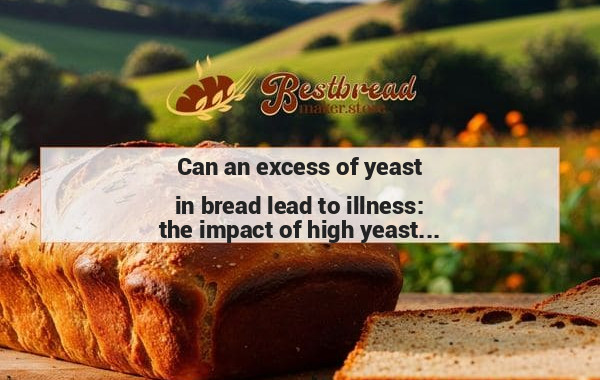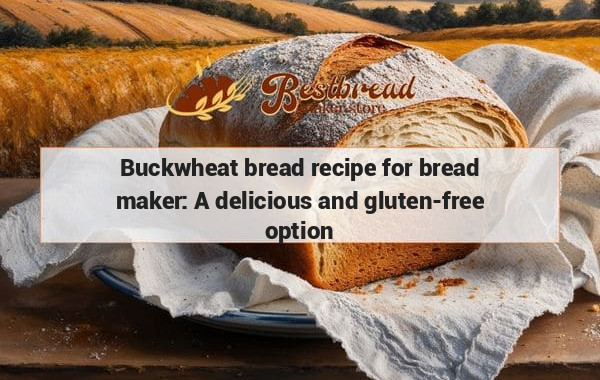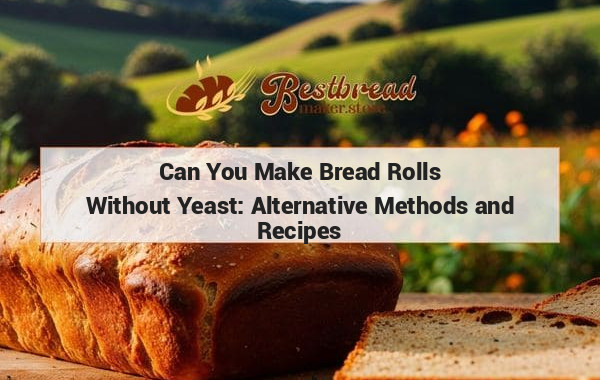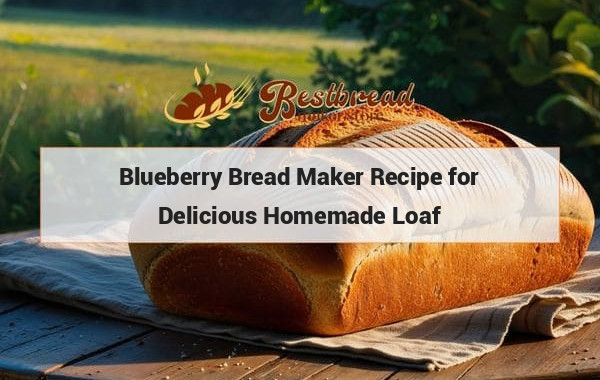Can an excess of yeast in bread lead to illness: the impact of high yeast levels on health
Consuming too much yeast in bread can potentially make you sick. Excessive yeast can lead to digestive issues such as bloating, gas, and diarrhea. It can also cause yeast overgrowth in the gut, leading to symptoms like fatigue, headaches, and yeast infections. It's important to consume yeast in moderation to avoid potential health problems.
Can Too Much Yeast in Bread Make You Sick?
When baking bread, yeast plays a crucial role in making the dough rise and giving the bread its light, airy texture. However, adding too much yeast can have some unintended consequences, both for the bread and potentially for your health.
Key Takeaways "Using too much yeast in bread can result in digestive discomfort, such as gas and bloating. While not life-threatening, excessive yeast may also cause the dough to overproof, affecting the bread's texture and flavor."
The Role of Yeast in Bread Making
Yeast is a living organism that ferments sugars, producing carbon dioxide and ethanol, which are key to the bread-making process. The carbon dioxide gas causes the dough to rise, while the ethanol evaporates during baking. The right balance of yeast is essential for producing bread with the right texture and flavor. But can too much yeast in bread make you sick? Let’s explore this question in detail.
How Excess Yeast Affects the Bread
Adding too much yeast to bread can cause the dough to rise too quickly. When this happens, the bread might have a strong, unpleasant yeast flavor and a coarse texture. The dough may overproof, leading to a dense and heavy loaf that lacks the delicate crumb structure typically desired in bread.
Effects on Dough Texture and Flavor
When the dough rises too fast, the yeast doesn't have enough time to properly ferment all the sugars, resulting in a sweeter but less flavorful bread. The structure can become weak, causing the bread to collapse in the oven. Overproofed dough is a common result of too much yeast, which often leads to large holes and an uneven crumb.
Can Eating Too Much Yeast in Bread Be Harmful?
While yeast is generally considered safe to consume, eating bread made with an excessive amount of yeast can lead to digestive issues. The fermentation process continues in the stomach, where the yeast can produce gas, leading to bloating and discomfort. In some cases, individuals who consume large amounts of yeast may experience nausea or indigestion.
Digestive Discomfort from Excess Yeast
Yeast, when consumed in excess, can continue to ferment sugars in your digestive tract, producing gas. This is particularly uncomfortable for people with sensitive stomachs or digestive issues. Symptoms might include bloating, gas, and in some cases, mild nausea. These effects are not dangerous but can cause significant discomfort.
Could Excess Yeast Contribute to Candida Overgrowth?
Some people are concerned that consuming too much yeast could contribute to the overgrowth of Candida albicans, a type of yeast naturally present in the body. However, the yeast used in baking is different from Candida. While eating excessive bread yeast won't cause a systemic infection, it could exacerbate existing digestive issues, especially in individuals with yeast sensitivity.
Tips to Avoid Using Too Much Yeast in Bread
To prevent the potential downsides of too much yeast, it's important to use the correct amount in your recipes. Here are a few practical tips to help you maintain the right balance:
Measure Yeast Accurately
Always measure yeast accurately. Most bread recipes call for about 1 to 2 teaspoons of yeast per 500 grams (4 cups) of flour. Using more than this can cause the dough to rise too fast and potentially lead to digestive discomfort.
Adjust Rising Times
If you're in a rush, it's tempting to add more yeast to speed up the rising process. However, this can backfire by creating a dense and overly yeasty bread. Instead, allow your dough to rise naturally, even if it takes a bit longer.
Watch for Overproofing
If the dough rises too much and collapses, it's a sign of overproofing. This can happen when there’s too much yeast or the dough is left to rise for too long. Keeping an eye on the dough and following recipe instructions can help prevent this issue.
How to Troubleshoot Bread Issues Related to Yeast
Bread baking is both an art and a science, and problems can arise even when following a recipe to the letter. If you suspect that excess yeast is causing issues with your bread, here’s how to troubleshoot:
Dense or Heavy Bread
This is often the result of too much yeast causing the dough to rise too quickly. The best solution is to reduce the yeast quantity and extend the rising time.
Strong Yeast Flavor
If your bread has an overpowering yeast taste, you’ve likely added too much. Next time, reduce the amount of yeast and ensure proper fermentation time.
Collapsed Loaf
A collapsed loaf is a sign that the dough has overproofed. Reducing the yeast and paying attention to proofing times can prevent this.
Frequently Asked Questions
1. How much yeast is too much for bread?
Generally, using more than 2 teaspoons of yeast per 500 grams (4 cups) of flour can be considered too much. This can cause rapid dough fermentation, leading to poor texture and flavor in your bread.
2. Can bread with too much yeast make you sick?
Eating bread with too much yeast can cause digestive discomfort, such as bloating and gas. However, it is unlikely to cause severe illness unless consumed in excessive amounts over a long period.
3. Does using too much yeast affect the bread's taste?
Yes, too much yeast can lead to an overly yeasty flavor, making the bread taste sour or "off." It can also impact the texture, making the bread denser and less pleasant to eat.
4. What happens if the dough rises too much?
If the dough rises too much, it can overproof, leading to a dense and collapsed loaf. Overproofed bread often has large holes and an uneven crumb structure.
5. How can I fix bread that has too much yeast?
Unfortunately, once you've added too much yeast, it's difficult to reverse the process. However, you can try reducing the rising time or baking at a slightly lower temperature to avoid further fermentation in the oven.
Conclusion: The Importance of Balance in Bread Baking Using the right amount of yeast is essential for creating delicious, well-textured bread. While too much yeast won’t cause severe health problems, it can lead to digestive discomfort and negatively affect the quality of your bread. If you're looking for the best bread maker to ensure your bread turns out perfectly every time, visit bestbreadmaker.store for top recommendations.








